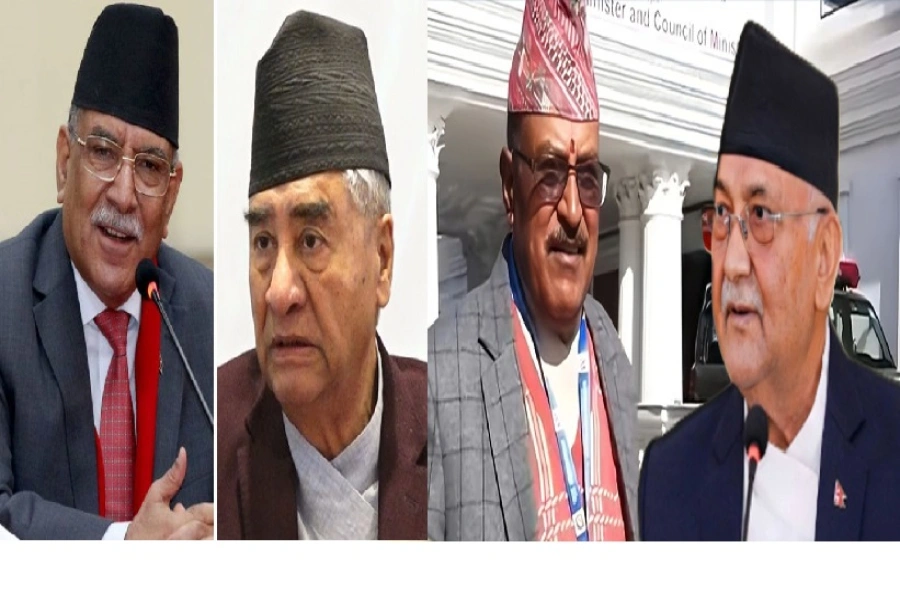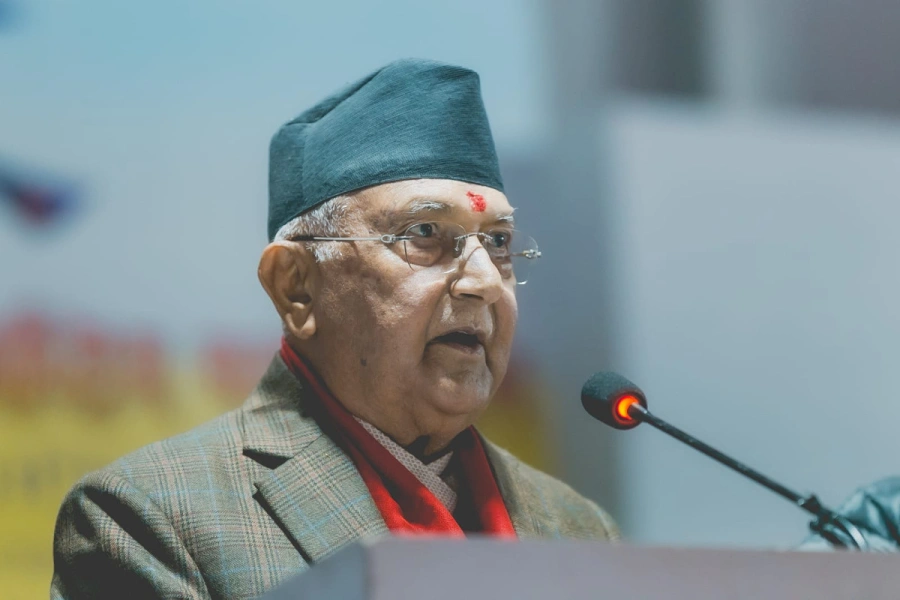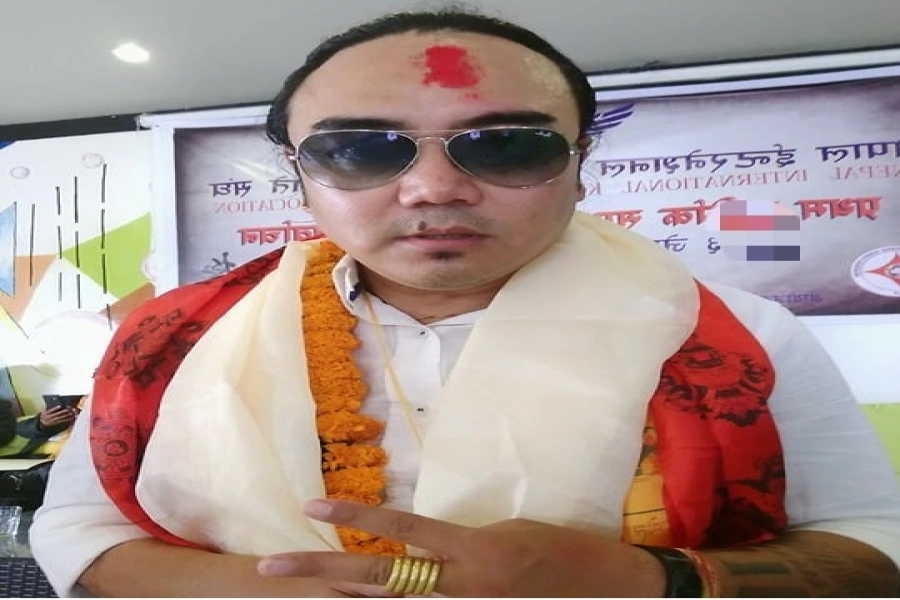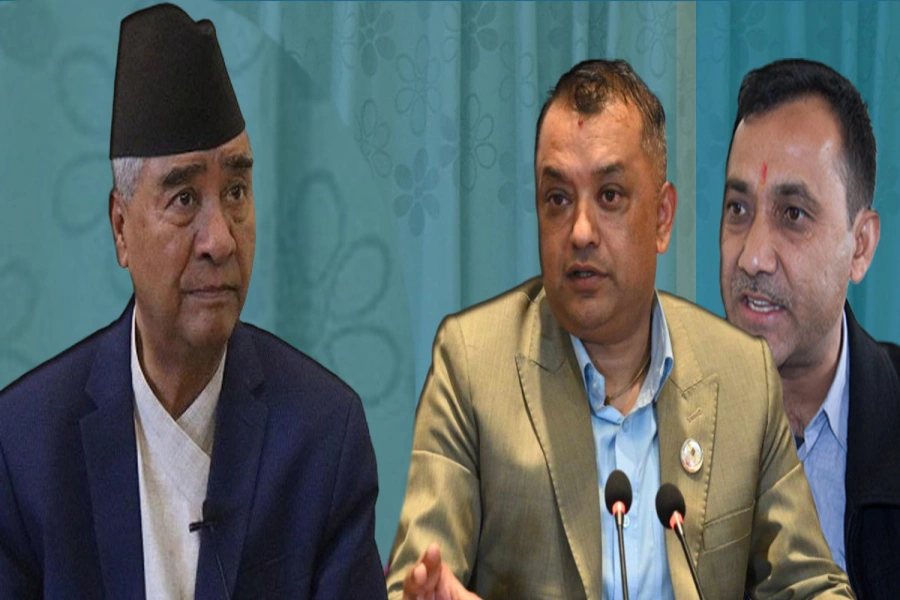For generations, mothers have hand-knitted woolen socks, mufflers, caps for their children to keep them warm and safe during chilling winter. Though earlier it simply seemed habitual, the gesture somehow has lost its charm in the recent years, probably because of modernization or eventual shift in people's preferences regarding fashion.
However, a few initiatives are being taken to revive the knitting skills of mothers and grandmothers. These initiatives have guaranteed an income for women and have become a more natural, traditional way for different generations to renew their bonds. They do not have a physical store, but the void is being covered through different social media platforms. Nasana Bajracharya of My City talked to three of these initiatives that have started their journey to keep the tradition alive and spread love in form of woolen wears.
Must Haves
 Not only the mothers but youngsters are also contributing to expand the woolen business. Neiha Joshi had grown watching her mother and aunts knit and loved wearing what they made. During her MBA project, she devised a pilot plan and displayed mom-made beanies, mufflers and gloves in college, for which she got an overwhelming response. She got Must Haves registered in 2015 and started working on the idea with her mother and aunts.
Not only the mothers but youngsters are also contributing to expand the woolen business. Neiha Joshi had grown watching her mother and aunts knit and loved wearing what they made. During her MBA project, she devised a pilot plan and displayed mom-made beanies, mufflers and gloves in college, for which she got an overwhelming response. She got Must Haves registered in 2015 and started working on the idea with her mother and aunts.
Struggle- Life’s other name

Currently, altogether 35 women get together at her house in Kalanki and knit, sharing stories of laughter and sorrows. Rather than hurrying them, Joshi prefers to take orders where they can work without pressure, in between their free time.
Whatever the design, Joshi is the first one to use and test its feel, comfort level, flexibility and feasibility before continuing with the production. She handles the operations with co-founder Asmeet Malla, and is now working on their collection for next winter. They use acrylic (sheep) wools for their products and recently extended production of neck warmers as well as cardigans.
Through Must Haves, Joshi wants spread awareness about hand-knitted wears and increase respect for designs and effort behind it, “Most people sell machine-knitted products as hand-knitted ones. They might be fine in quality, but you do not get that warmth like the latter will give. Must Haves is also getting recognition in the UK and people there appreciate the design as well as the effort.”
Astamatrika Wears
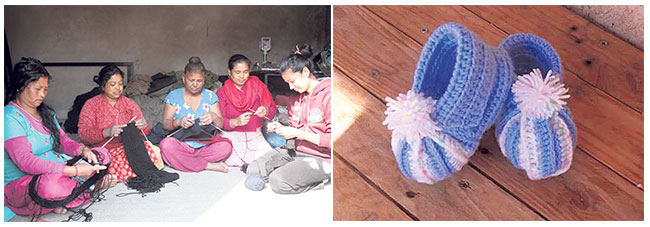 A mother wants the best for her child and wool is the trusted as well as most comfortable wear for new-borns, says Pratiksha Silwal, one of the eight co-founders and sisters of Astamatrika. Pratiksha handles the operations of Astamatrika Wears with her sisters — Soni, Reji, Jeni, Nisha, Sandhya, Pratigya and Prerana. When the sisters became new mothers, wanting to keep their children warm, started knitting for them. Seeing that their children were benefitted, they decided to share the products with other new mothers and infants. They started some six months ago with socks, caps which were suitable for both boy and girl babies. They have now started designing and knitting woolen frocks, sweaters, trousers and wrap for children up to three years of age. For all their products, they use baby wool, which does not result in rashes, itching and are soft on their skin.
A mother wants the best for her child and wool is the trusted as well as most comfortable wear for new-borns, says Pratiksha Silwal, one of the eight co-founders and sisters of Astamatrika. Pratiksha handles the operations of Astamatrika Wears with her sisters — Soni, Reji, Jeni, Nisha, Sandhya, Pratigya and Prerana. When the sisters became new mothers, wanting to keep their children warm, started knitting for them. Seeing that their children were benefitted, they decided to share the products with other new mothers and infants. They started some six months ago with socks, caps which were suitable for both boy and girl babies. They have now started designing and knitting woolen frocks, sweaters, trousers and wrap for children up to three years of age. For all their products, they use baby wool, which does not result in rashes, itching and are soft on their skin.
"The eight of us always wanted to do something so we got together, discussed our idea and approached homemakers who could knit. The homemakers work from home and drop the finished items to us and we deliver,” Silwal adds. The sisters connect through their WhatsApp group where they discuss idea, update each other and make further plans for Astamatrika. The team of sisters also plan to put together a training session for the homemakers who’ve recently joined Astamatrika. For now, they are open for collaboration and even take orders for kids above three years.
Aji’s
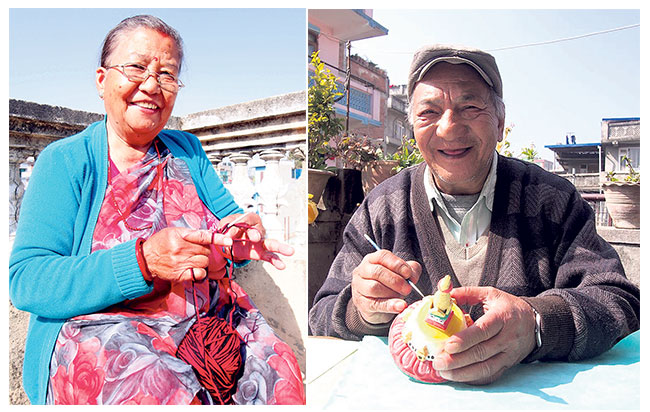 Appreciation is welcomed by people of all generation and Aji’s (grandmother’s in Newari language) has become a platform for grandparents to get appreciation. On New Year 2018, sisters — Lorina and Irina Sthapit — gave shape to their year-long idea to start working with their own grandmother and other grandparents.
Appreciation is welcomed by people of all generation and Aji’s (grandmother’s in Newari language) has become a platform for grandparents to get appreciation. On New Year 2018, sisters — Lorina and Irina Sthapit — gave shape to their year-long idea to start working with their own grandmother and other grandparents.
“We grew up wearing woolen socks that our grandmother used to make for each of us every winter. She loves knitting but the clothes started to pile on. So we started thinking of selling those and spread the love so that she can continue knitting. We got the push after attending a workshop on basics of entrepreneurship,” shares Lorina.
Like their grandmother, Champa Devi Tuladhar (75), grandmothers of their cousins, friends and other relatives have joined Aji’s and started making different items. They make woolen socks, head-bands, hand-made bracelets, tara puja set, straw mats and sculptures. Each item has been given a name (like ‘Lumu’, ‘Tapu’, ‘Puh’, ‘Chiba’) and is inspired from Newari language.
Recently, they welcomed their first grandfather in the team, Juju Ratna Tamrakar (69). “We approached the grandparents through their children and grandchildren. As we had intended, Aji’s has created opportunities for the elderly population to share time, bond and learn about each other. Moreover, the smiles on the grandparents’ faces upon being appreciated and upon being able to do what they love are priceless,” says Irina adding, “Every grandparent has a lifetime of experience and stories to share. Soon we want to give a form to their stories as well as knowledge by writing them on postcards or using other forms of media.”






